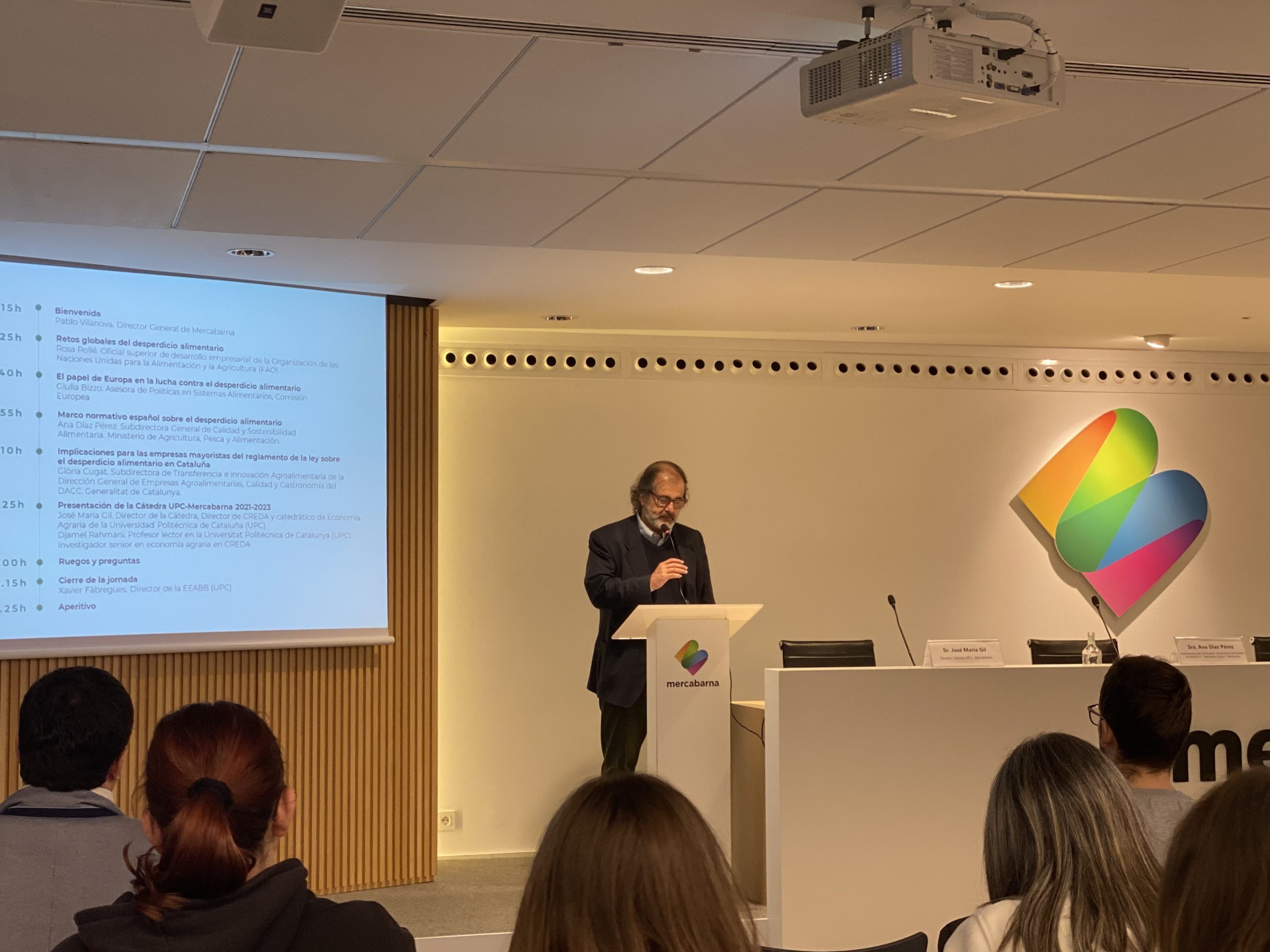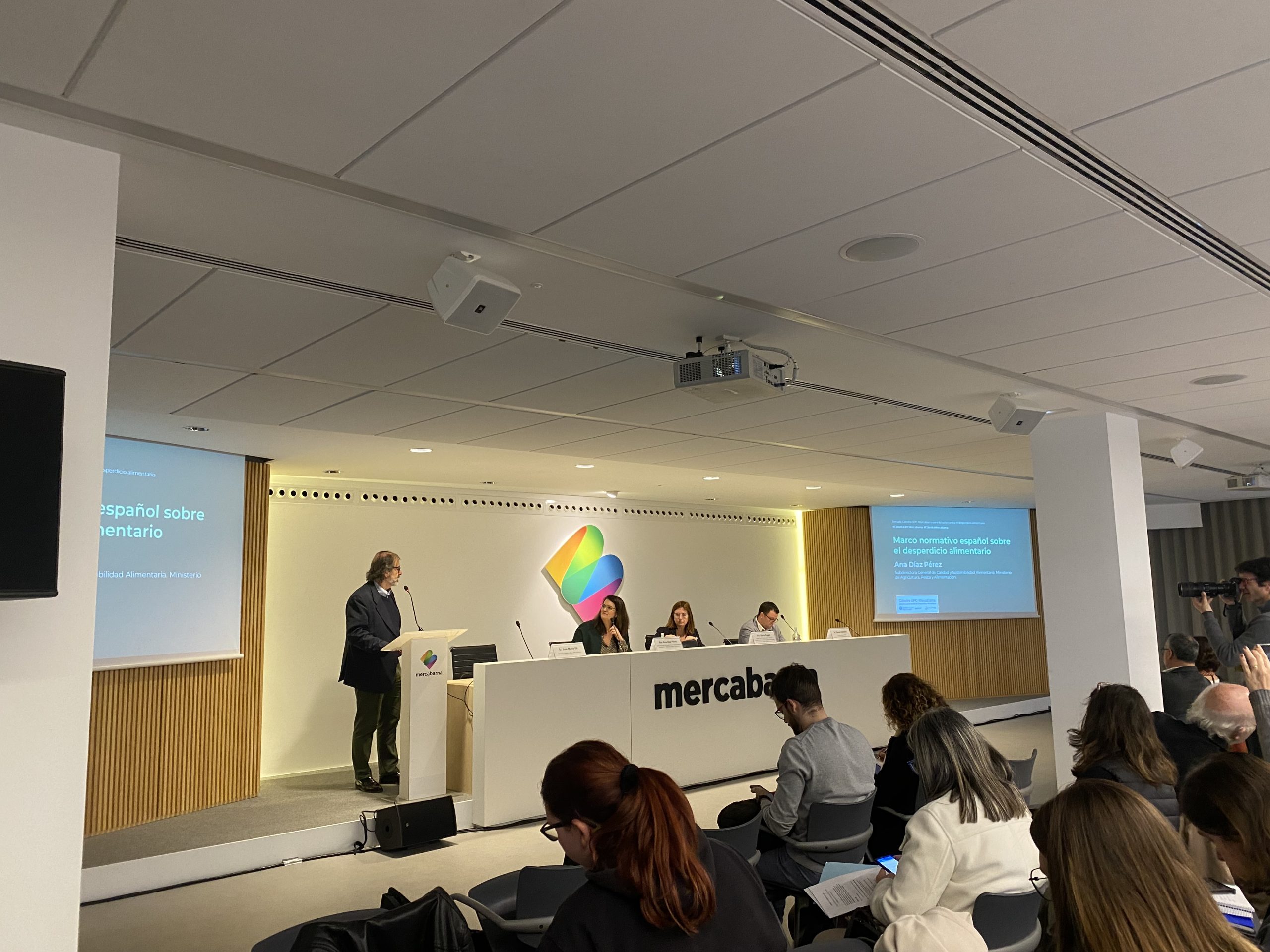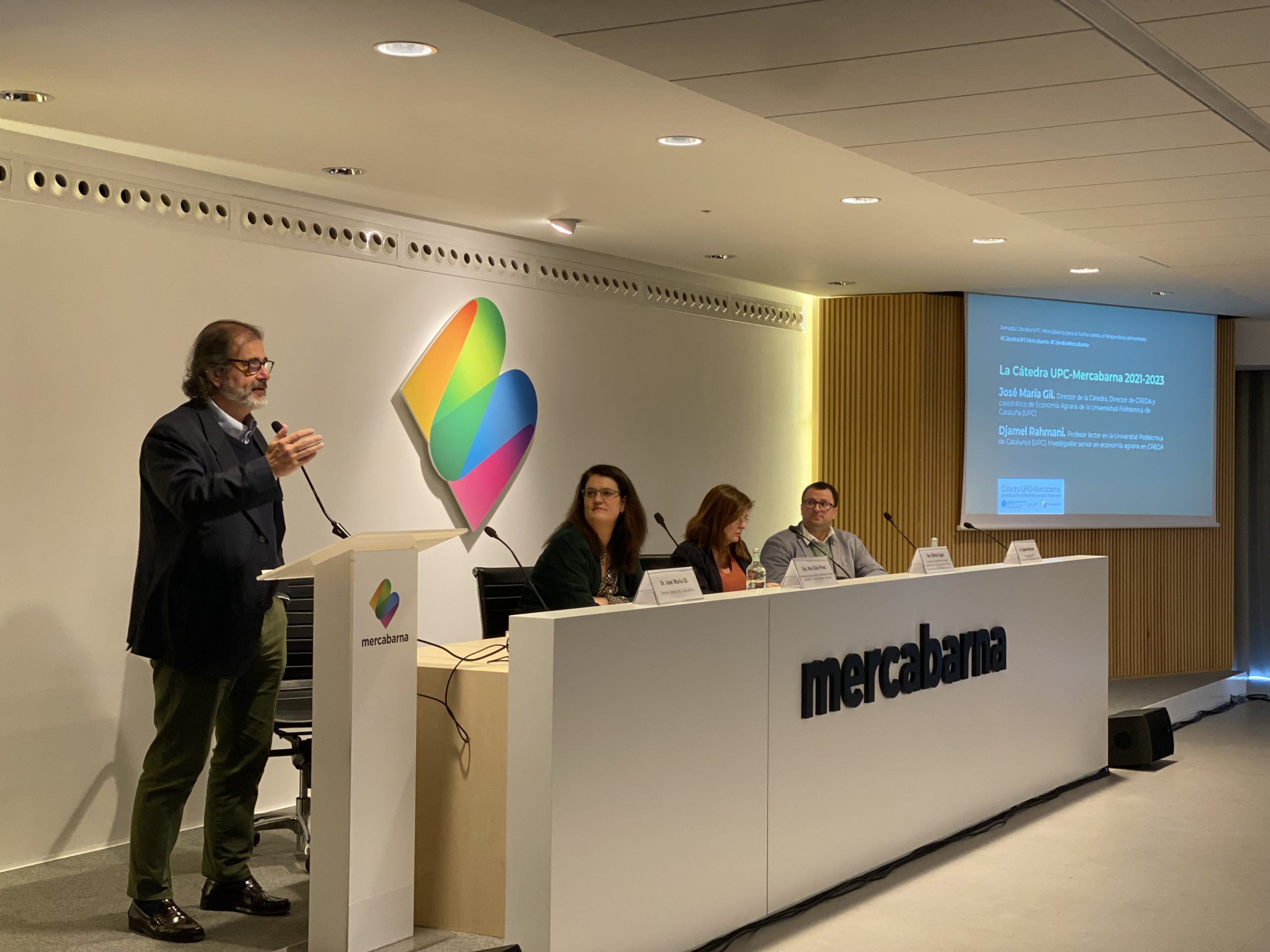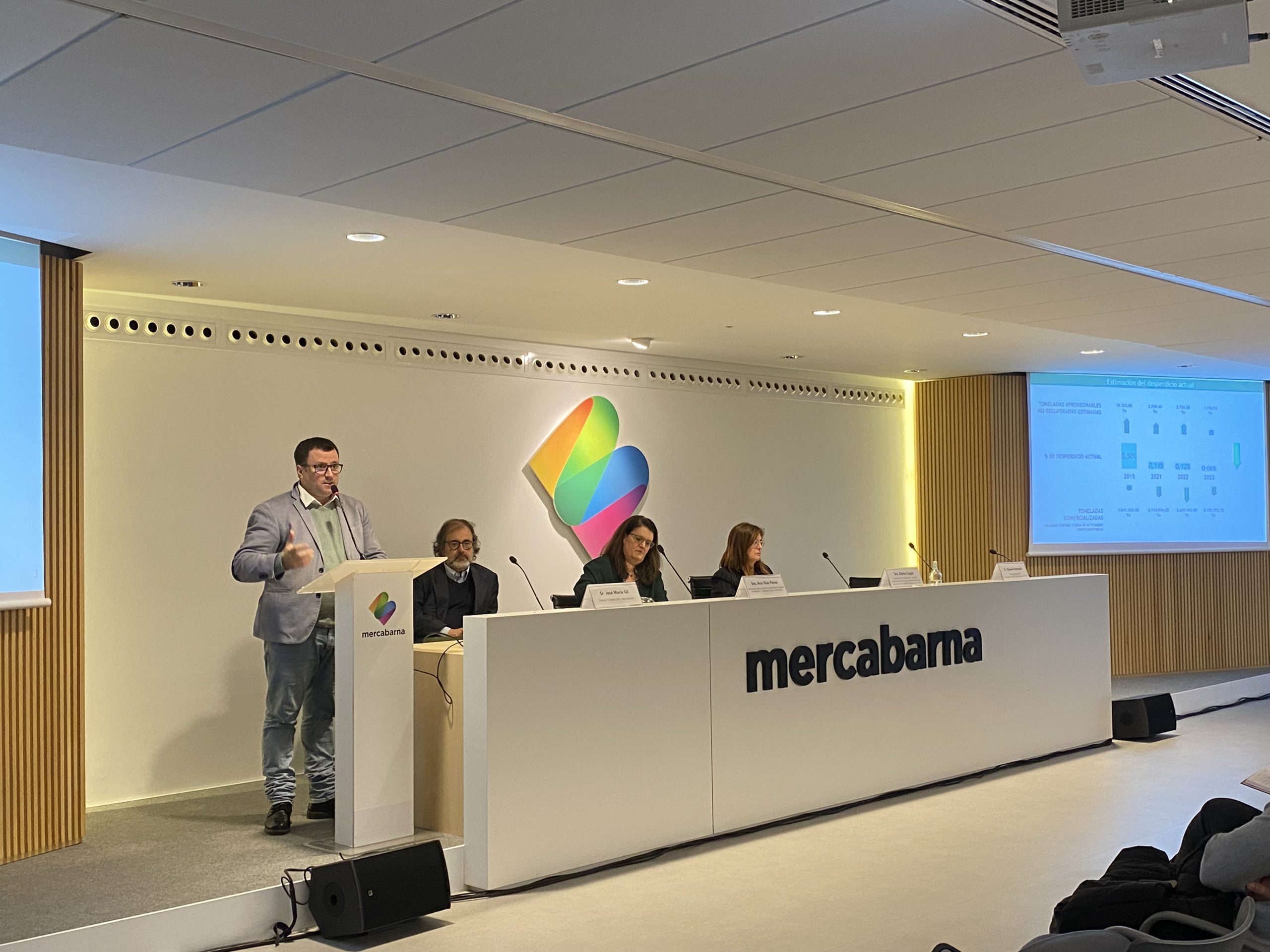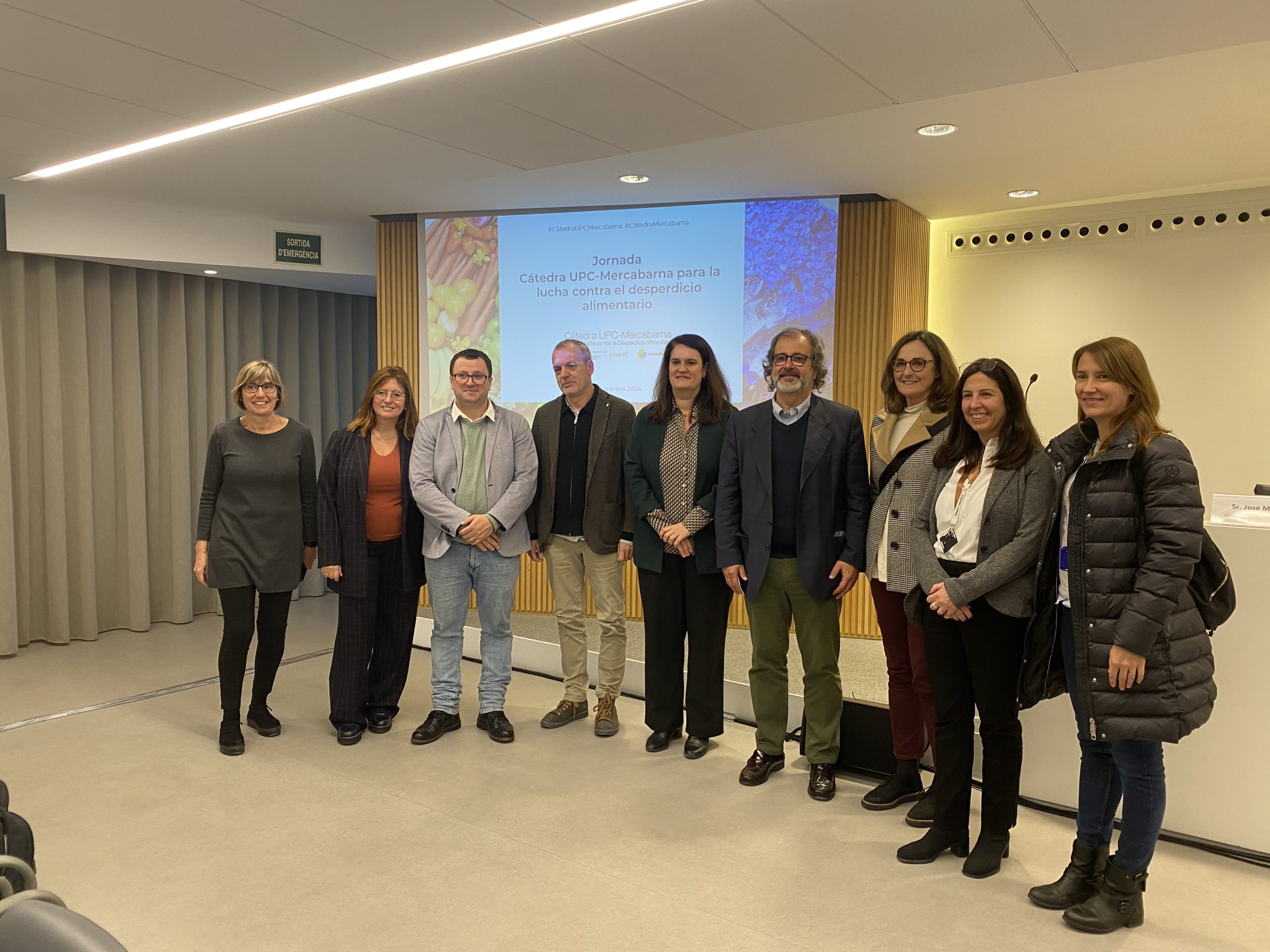- CREDA has shared the results of the UPC-Mercabarna Chair after three years of diagnosis
- The team has developed a series of awareness-raising actions such as the creation of triage aid cards, the celebration of the Paco Muñoz Awards and the creation of a digital library
February 28, 2024
The Center for Agri-Food Economics and Development (CREDA) has presented the results obtained after three years of work in the UPC-Mercabarna Chair, a project that was born from the hands of the Universitat Politècnica de Catalunya (UPC) through the Escola d’Enginyeria Agroalimentària i Biosistemes de Barcelona (EEABB), together with Mercabarna.
In the session organized in the premises of the Catalan market, Chema Gil, director of the department and also of CREDA, and Djamel Rahmani, PhD in Analysis and Economic and Business Strategy and researcher at CREDA, shared the evolution of the figures of food waste generated between 2021 and 2023. These have been collected through three annual quantifications (in April, July, and November) with the collaboration of more than 70 volunteers, usually students from the EEABB, but also Mercabarna staff.
According to Gil, the fact that in recent years there has been a “price increase in food of almost 20%, it has influenced the awareness of consumers, but also of all agents in the sector, so which has decreased the number of rejected products and waste generated“.
Thus, the main causes of food rejection in 2023 have been: food outside commercial criteria such as very ripe or in bad condition (40.65%), surplus supply (26.9%) and errors of origin (19.45%). Compared to the year 2021, there has been a large decrease in the surplus product offered, which was the main cause of food rejection with 76.41% of the total.
In terms of current figures, between 2015 and 2023 food waste has fallen by more than five percentage points, reaching a figure of 0,06%, as the number of usable food not recovered has decreased from 10.303 tonnes in 2015, to 1.174 in 2023. According to Rahmani, this means that “of the total waste generated, there are fewer products that can be used“.
This fact is due, to a large extent, to “the decrease in the willingness to get rid of food quickly“, but also to “the implementation of the food recovery centre Foodback, the use of smart containers and the awareness campaigns led by centres such as Mercabarna“, which he explained, “influence the awareness of actors such as wholesalers“.
In the same market, the chair has been able to observe a reduction in waste at the green point, in this case “due to the distance between the companies and the point“, but also due to “the state of the food that they arrive, since they are generally products that have been accumulated for hours or even days“, the researcher assured.
On the contrary, this fact has increased food waste in the containers of the central fruit and vegetable market. Rahmani points out that “they are used more frequently” and therefore “the food that is thrown into these tanks looks better than that of the green dot“. All this also depends on the time of year in which the quantification is done, “the product rejected in winter or spring has a higher percentage of rejection than in summer, mainly due to the climatic conditions“, he made sure.
To conclude, Gil presented the various acts and actions carried out to achieve the collaboration and involvement of all agents in the chain, from the creation of cards to help in the triage and classification processes that lead to term Foodback; to the promotion of good practices and initiatives with the Premis Paco Muñoz; through the creation of a digital library on food waste.
The event, which was run by the Mercabarna team, welcomed more than 80 attendees, including representatives of organizations that collaborate with foodwaste, food companies and administrations. In addition, it has had the participation of Pablo Vilanova, director general of Mercabarna, Rosa Rollé, senior business development officer of the FAO, Giulia Bizzo, policy adviser in food systems at the European Commission, Ana Díaz, deputy general director of quality and food sustainability at the Ministerio de Agricultura, Pesca y Alimentación, Glòria Cugat, deputy director of transfer and agri-food innovation of the general direction of agri-food companies, quality, and gastronomy of the DACC, and Xavier Fàbregues, director of the EEABB.


